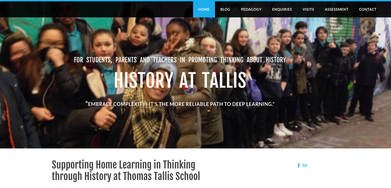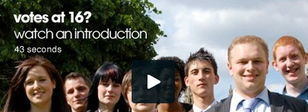Humanities & Social SciencesWe offer a diverse range of A-level subjects including History, Psychology, Government & Politics, Sociology, Geography, and Economics. We also offer BTEC Health and Social Care at Level 3. We have a history of excellent results with many students going on to study a Humanities and Social Sciences subject at university. The teaching staff are experienced and come from a wide range of backgrounds: politics, industry, healthcare, university research and teaching abroad.
Economics is a challenging A-level subject which focuses on the study of rational choice and the best allocation of resources. Economics explains individual, familial, commercial and governmental decisions and structures. Although a humanities subject, it is mathematical and data-heavy in nature, so economics students must be able to reason mathematically, apply difficult new concepts, and write concisely about their findings. The course introduces students to: the concept of markets, and how they fail; to topics in macroeconomics focusing on the measurement of national economic performance; and to policies and ideas about labour markets and how they function both nationally and globally. Thinking from a economist's perspective helps us make better choices about difficult questions. Geography A-level focuses on the world around us and what could impact its future. It is a very contemporary subject, as it explores issues of pressing concern such as globalisation, water insecurity, environmentalism and climate change. The course contains both physical and human geography, and there are both written examinations and a substantial independent investigation. Students attend the London Tectonic Hazards conference every year. The course also includes four days of fieldwork in which data is collected and used to complete the independent investigation. Studying Government and Politics will help you to play a more active role as a citizen, and to question the things that governments do. You will develop research and communication skills through studying the complexities of contemporary UK and American politics., and develop an up-to-date knowledge of current affairs. Analytical essays will sharpen your debating skills and persuasive writing. There is an active student-led debating society and a programme of visiting speakers, lobbyists, activists, MPs and academics. You'll also visit the Houses of Parliament and Greater London Assembly. This subject gives you the understanding to imagine different futures for us all. Our triple Health and Social Care BTEC course is equivalent to three A-levels. It aims to introduce students to a wide variety of experiences in the health, social care and early years sectors. It's a partly vocational course with 100 hours of work experience over two years. There's also a lot of essay writing, of course, and either three or four externally assessed exams as well. BTEC students have to be organised, great at deadlines, and these days also good at writing against the clock. Recent BTEC students have gone on to nursing courses at King's and Birmingham, to train as primary school teachers, and to work in early years education. History teaches its students to be critical and analytic. Key concepts are those of cause and effect, and change and continuity. Historians look closely at evidence, and reason closely about what this evidence can be taken to show about the past and its presence in the present. The first year of the course focuses on seventeenth-century Britain and Russia at the turn of the twentieth century. The second year course looks at Germany 1871-1990, and also studies the causes of the twentieth-century Cold War. Assessment is mostly through written examination: historians learn to be consummate essayists in exam conditions! Psychology is a tough science subject which focuses on analysing and explaining the mind and why we behave as we do. There are many theories that try to answer this difficult question. In the first year of the course psychologists study parent-child attachment, how the memory functions, psychopathology (or aberrant mental states), biopsychology and the importance of social influence on states of mind. As a science, psychology makes use of quantitative and qualitative data, so psychologists must be able to think mathematically. Sociology is the study of theories about society. Key questions in sociology include: what's the real nature of society and how is society most powerfully to be understood? why does society work as it does, and who benefits? Key concepts in sociology are those to do with social class, gender, ethnicity and the nature of culture itself. Sociologists investigate the aims and purposes of schooling and education, the nature of the family and the household, and the causes of crime and deviance. Sociologists must also be able to think statistically about large amounts of data, and understand the ways in which this data is presented visually. The Humanities Faculty provides memorable extra-curricular experiences for students including a 4 day trip to Berlin; the opportunity to go to Auschwitz with the Holocaust Memorial Trust; work experience in a range of educational and social care placements; a field trip to Dorset; research at London Zoo and the experience of walking the corridors of power in the GLA and Parliament. We also invite in guest speakers so that you can experience a range of viewpoints. All of the subjects in humanities aim to “open windows on the world”, so if you want to debate, investigate and explore the issues that have shaped and are shaping the world we live in then we look forward to meeting you. |
Subject Information
Economics website
| ||||||||||||||||||||||||||||||||||||||||||||||||||||||||||||||||||||||||









